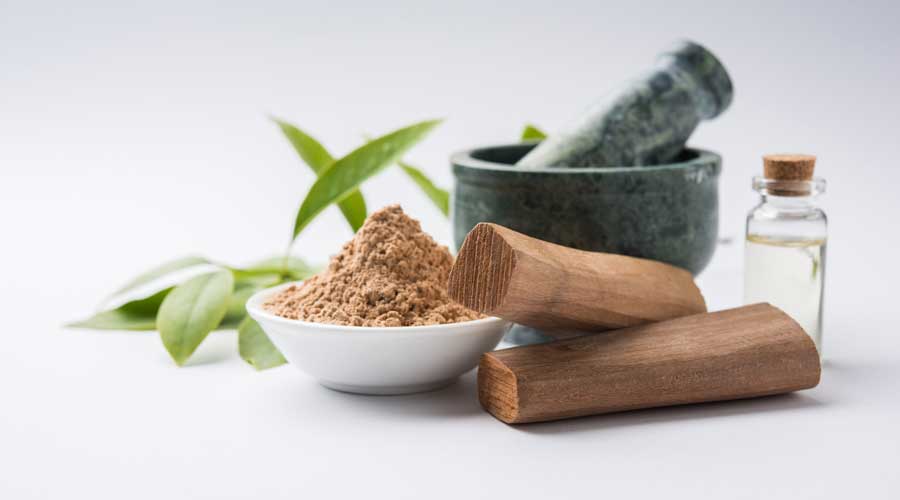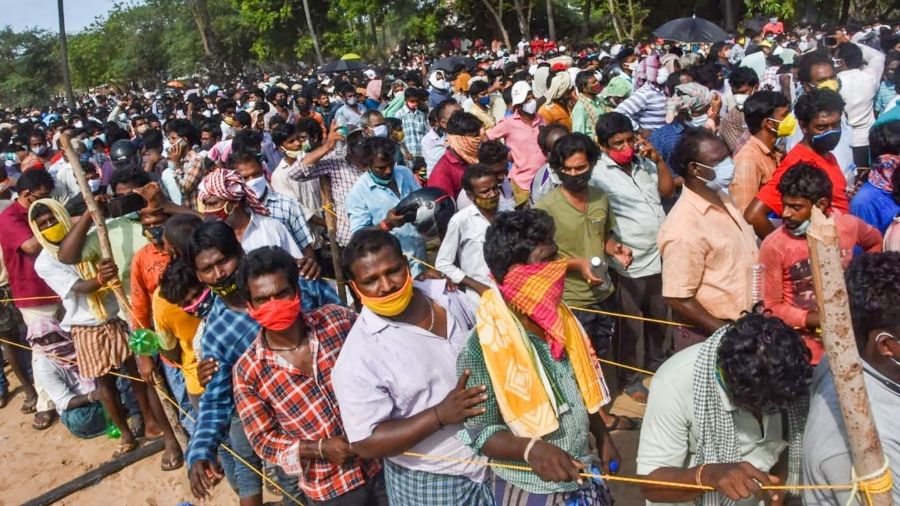A herbal formulation promoted by India’s ayurveda ministry as a remedy against mild and moderate Covid-19 and included in its clinical management protocols has no beneficial effect against the infection, new research has suggested.
Doctors at the All India Institute of Medical Sciences, Jodhpur, have found no differences in the course of Covid-19 infections or viral clearance between patients who received the formulation, Ayush-64, and those who had received standard care.
Their study found that while the formulation was safe and had no adverse effects, there were no significant differences in the fever patterns, respiratory symptoms or key blood test measurements between patients who had received Ayush-64 and those on standard care.
“Ayush-64 has no significant beneficial effect” compared with the standard care, Jaykaran Charan, associate professor of pharmacology at AIIMS, Jodhpur, and his colleagues said in their study, not peer-reviewed yet but posted on Wednesday on medRxiv, an online preprint server.
The findings appear to contradict the results of an earlier study led by the Centre for Rheumatic Diseases, Pune, which had suggested that Ayush-64 “hastened recovery, reduced hospitalisation, and improved overall health in mild and moderate Covid-19” when given with standard care.
The AIIMS study had 60 patients while the earlier study tracked 140 patients.
The earlier positive results and the new negative results, the AIIMS doctors said, underlined the need for validating the efficacy of Ayush-64 against Covid-19 through a rigorous “double-blind” trial with a large sample of patients.
A double-blind study is one in which neither the patients nor the doctors know who is receiving Ayush-64 and who is receiving standard care and are intended to minimise any bias or placebo effects.
The call for a rigorous evaluation of Ayush-64 against Covid-19 comes months after the Union ministry for ayurveda, yoga, unani, siddha and homoeopathy (ayush) described the formulation as “one of the most significant developments” for treating Covid-19.
The ayush ministry had in April this year said the Central Council for Research in Ayurvedic Sciences had conducted “extensive robust clinical trials focusing on the management of asymptomatic, mild to moderate Covid-19” in collaboration with medical colleges across India.
The trials had shown that Ayush-64 had anti-viral, immune-modulating and anti-fever effects and “it is found useful in the treatment of asymptomatic, mild and moderate Covid-19 infections”, the ministry had said.
The ayush ministry’s national clinical management protocol for Covid-19 too lists Ayush-64. The ministry said six clinical studies had shown “very promising trends” based on which it was included in the protocol.
But sections of doctors have long called for caution in interpreting any clinical trial results, especially those involving mild or moderate Covid-19. “We know 80 per cent of Covid-19 patients with mild symptoms will likely recover on their own,” said an internal medicine specialist who requested not to be named.
“Studies need to be well-designed to distinguish whether the patients recovered on their own or because of the beneficial effect of a medication.”











